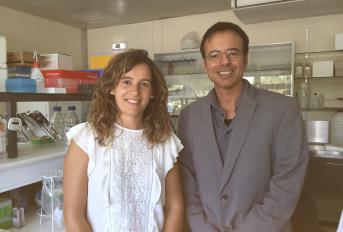Associação Portuguesa de Investigação em Cancro
Glycosylation in cancer: mechanisms and clinical implications
Glycosylation in cancer: mechanisms and clinical implications

Autores e Afiliações:
Pinho SS1,2,3, Reis CA1,2,3,4.
1Instituto de Investigação e Inovação em Saúde (Institute for Research and Innovation in Health), University of Porto, Portugal.
2Institute of Molecular Pathology and Immunology of the University of Porto (IPATIMUP), Rua Dr. Roberto Frias s/n, 4200-465 Porto, Portugal.
3Institute of Biomedical Sciences Abel Salazar (ICBAS), University of Porto, Rua de Jorge Viterbo Ferreira n.228, 4050-313 Porto, Portugal.
4Faculty of Medicine of the University of Porto, Alameda Prof. Hernâni Monteiro, 4200-319 Porto, Portugal.
Abstract:
Despite recent progress in understanding the cancer genome, there is still a relative delay in understanding the full aspects of the glycome and glycoproteome of cancer. Glycobiology has been instrumental in relevant discoveries in various biological and medical fields, and has contributed to the deciphering of several human diseases. Glycans are involved in fundamental molecular and cell biology processes occurring in cancer, such as cell signalling and communication, tumour cell dissociation and invasion, cell-matrix interactions, tumour angiogenesis, immune modulation and metastasis formation. The roles of glycans in cancer have been highlighted by the fact that alterations in glycosylation regulate the development and progression of cancer, serving as important biomarkers and providing a set of specific targets for therapeutic intervention. This Review discusses the role of glycans in fundamental mechanisms controlling cancer development and progression, and their applications in oncology.




